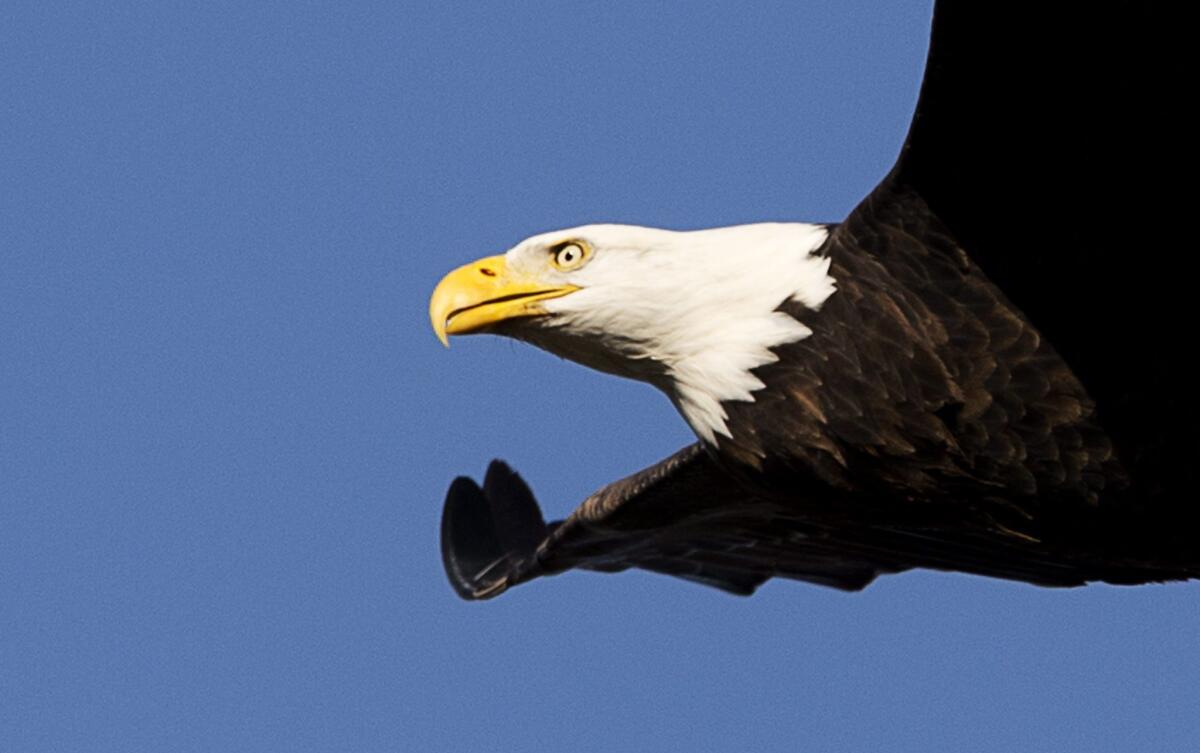Renewable energy projects can now get 30-year permit to kill eagles

- Share via
Solar and wind farms scored a victory Friday when the Interior Department announced an extension of permits which allow renewable energy projects to accidentally kill or injure bald eagles without penalty.
Renewable energy companies will now be able to obtain permits good for up to 30 years, a sharp jump from the previous five-year maximum.
In a statement, Interior Secretary Sally Jewell said the permitting change will “help the renewable energy industry and others develop projects that can operate in a longer term, while ensuring bald and golden eagles continue to thrive.”
PHOTOS: Richest and poorest cities in America
These permits extend back to 2009, when the U.S. Fish and Wildlife Service began a program allowing renewable energy projects to “take” -- meaning injure, kill or disturb -- bald and golden eagles.
“All permits will be closely monitored to ensure that allowable take numbers are not exceeded,” the Interior Department said, “and that conservation measures are in place and effective over the life of the permit.”
A study earlier this year reported that U.S. wind turbines kill 1.4 million birds and bats every year. Another study in September by government biologists concluded that wind farms have killed at least 67 eagles since 2008.
Last month, Duke Energy agreed to pay $1 million in fines after a subsidiary of the company pleaded guilty to killing protected birds and violating the Migratory Bird Treaty Act. The Justice Department had charged the company with the killing of dozens of birds, including 14 golden eagles, at two wind farms in Wyoming.
Environmental groups slammed the change and said they would challenge the permit extension in court.
“All options are on the table,” David Yarnold, president of the National Audubon Society, said in a statement. “Instead of balancing the need for conservation and renewable energy, Interior wrote the wind industry a blank check.”
ALSO:
Income inequality is linked to depression, study finds
Bitcoin now accepted as tuition payment at one Cyprus university
U.S. students lag behind many nations in reading, science and math
Follow Shan Li on Twitter @ShanLi
More to Read
Inside the business of entertainment
The Wide Shot brings you news, analysis and insights on everything from streaming wars to production — and what it all means for the future.
You may occasionally receive promotional content from the Los Angeles Times.










